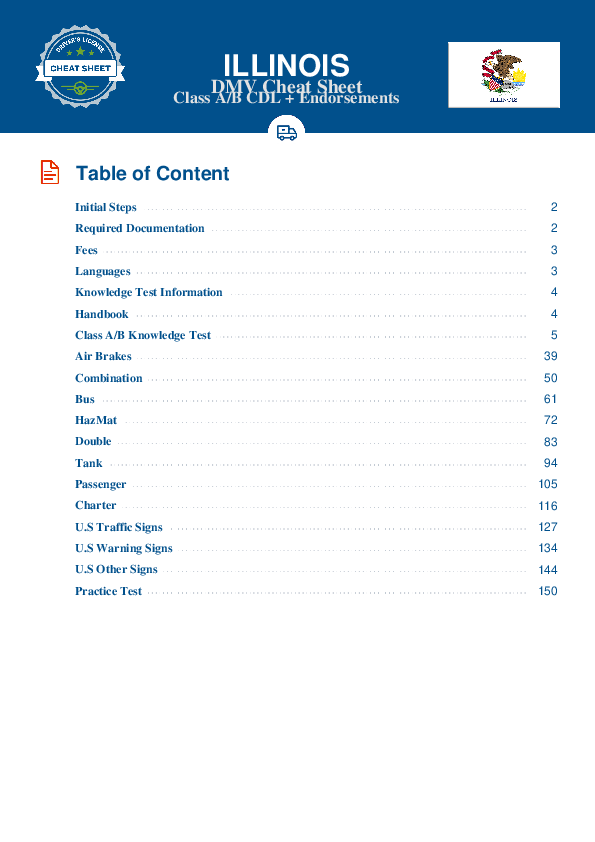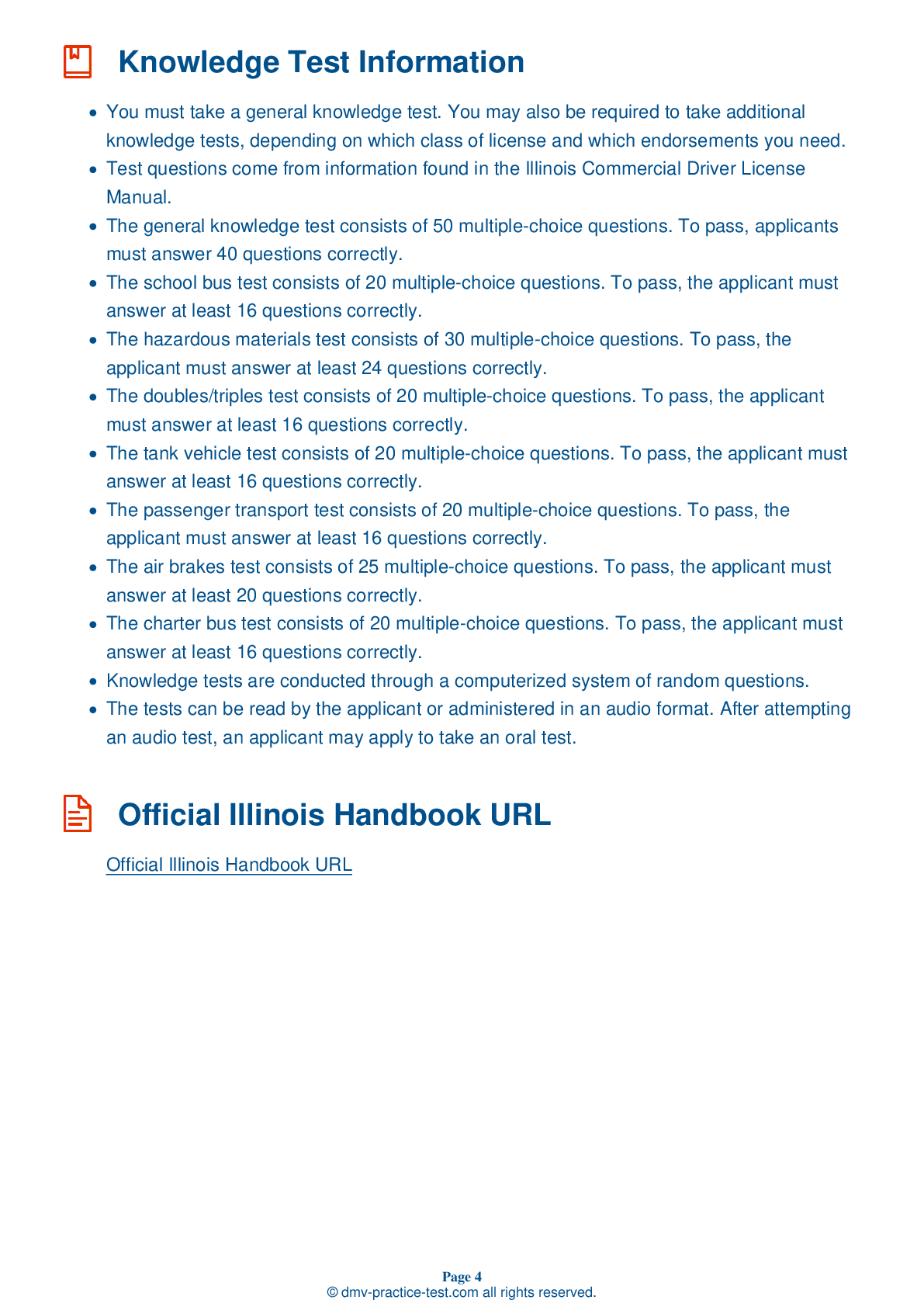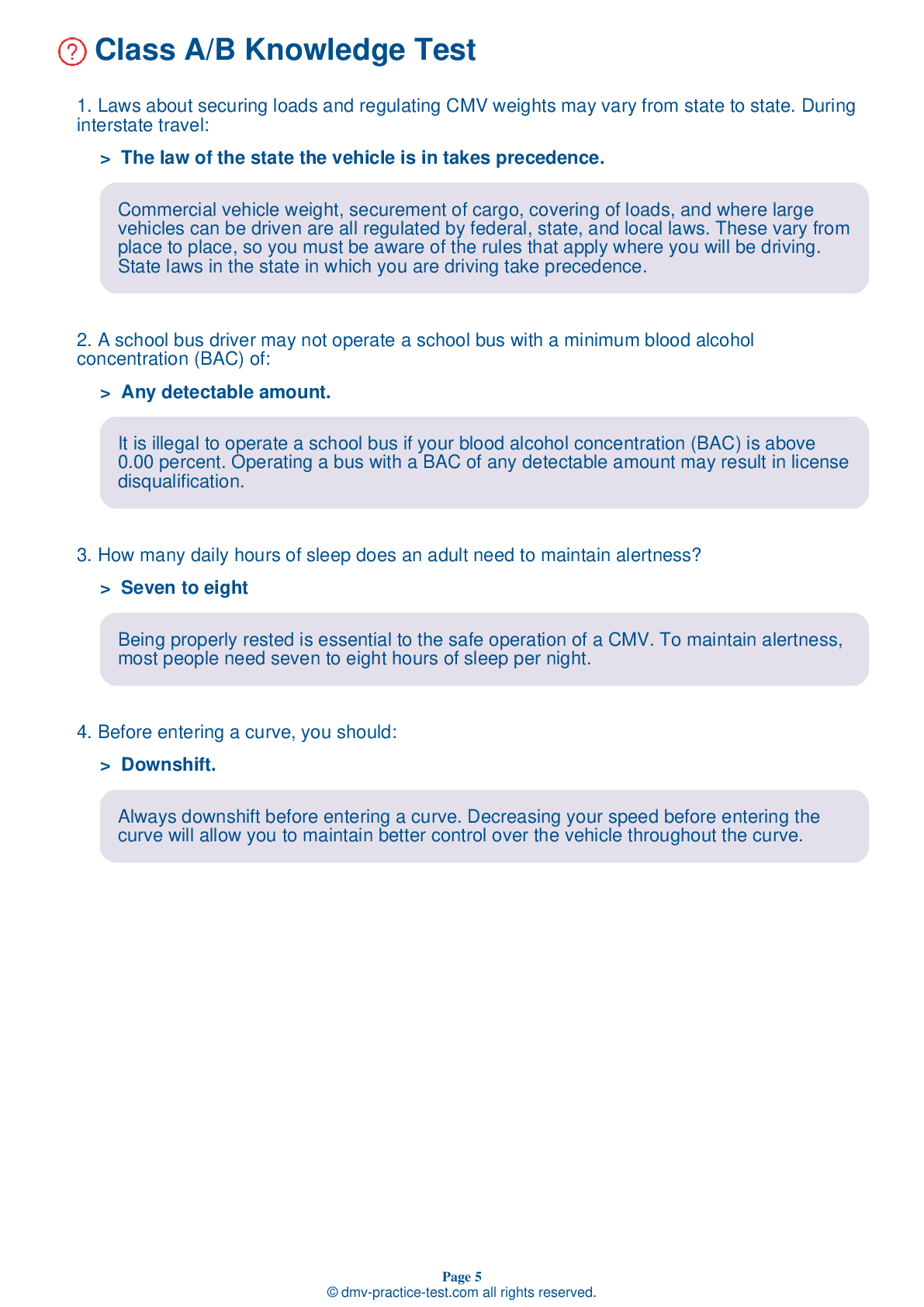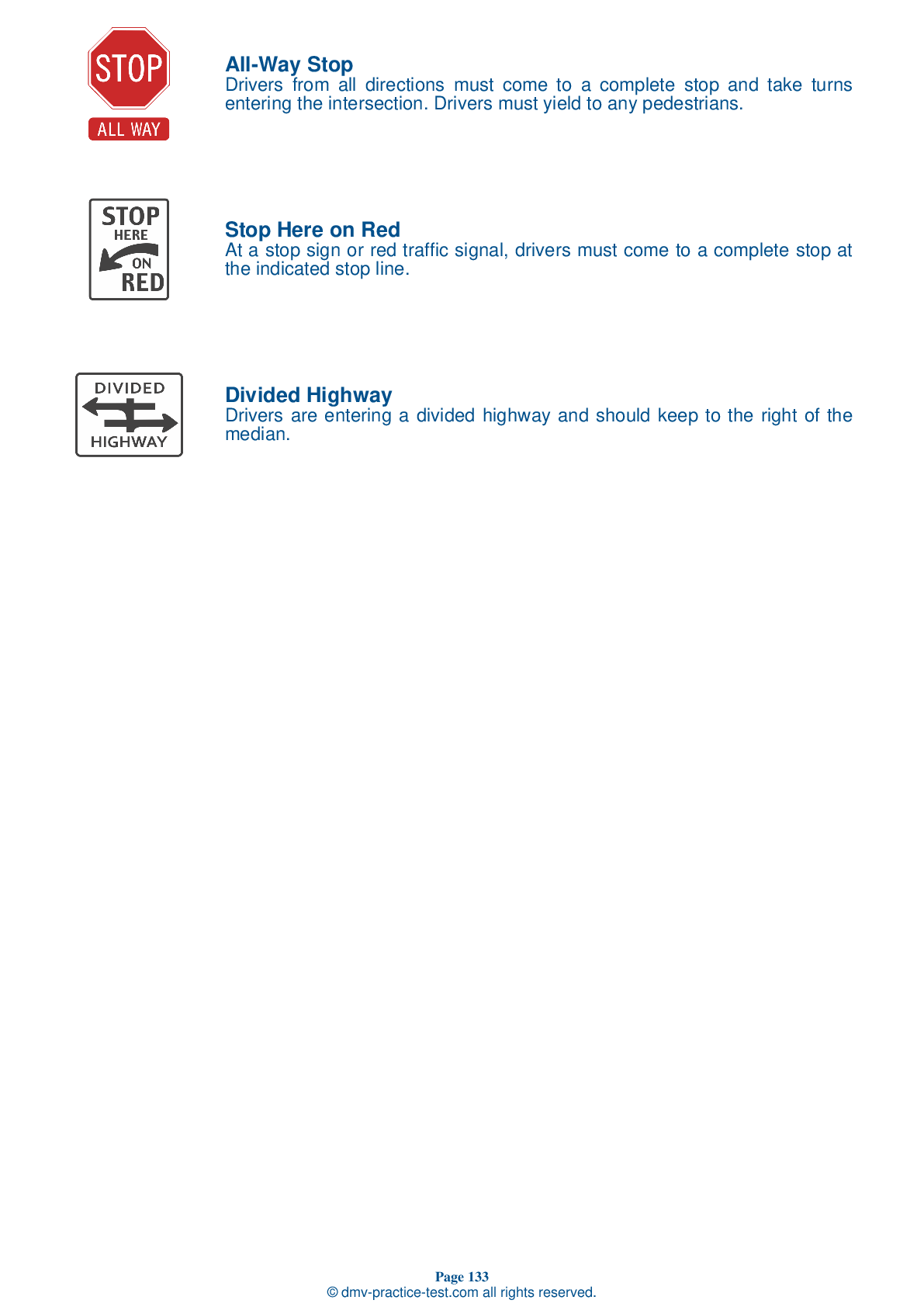Combination #2
Combination Vehicles Practice Test | Illinois 2026 #2 Page 3 of 3
Train for FREE online with our Illinois CDL combination vehicle test. The official exam test consists of several obligatory parts, with all of them checking your knowledge of different blocks of road rules. If you need to obtain a IL combination license in 2026, practice as much as possible. Free sample tests published on our website will help you check and improve your knowledge and boost your grades. Please bear in mind that DMV requirements for issuing a combination license may vary from state to state.
20
16
20
15 . When the wheels of a trailer lock up:
They will likely go flat.
A trailer may swing out and strike other vehicles if its wheels lock up. This is especially likely with lightly-loaded trailers.
16 . Starting in which year were newly manufactured trailers required to have ABS?
2004
All trailers and converter dollies manufactured on or after March 1, 1998 must be equipped with Anti-Lock Braking Systems (ABS).
17 . If a parked trailer does not have spring brakes, you should keep the trailer from moving by:
Parking on a slight incline.
If a parked trailer does not have spring brakes, wheel chocks should be used to prevent it from moving. Air brakes can only hold a parked trailer for as long as there is air pressure remaining in the air tanks, so wheel chocks will ensure safety.
18 . What is another name for the service line?
The power line
The trailer service air line is also referred to as the control line or signal line.
19 . If a load is placed on one side of a trailer, the trailer:
Have improved steering.
If the weight of a load is placed primarily one side of a trailer, the trailer may lean, increasing the risk of a rollover.
20 . When coupling a trailer:
Only one set of glad hands should be connected.
When coupling, make sure you couple matching glad hands. They are often color-coded to help drivers avoid mistakes. Typically, blue is used for service lines and red is used for emergency lines.
2026 Illinois | Frequently Asked Questions
A CDL Class A license in Illinois is a commercial driver's license that permits the holder to operate any combination of vehicles with a Gross Combination Weight Rating (GCWR) of 26,001 pounds or more, provided the vehicle(s) being towed is/are over 10,000 pounds. This typically includes tractor-trailers and truck and trailer combinations.
With a Class A CDL license in Illinois, you can operate vehicles such as tractor-trailers, truck and trailer combinations, tank vehicles, livestock carriers, and flatbeds. Additionally, it allows the operation of all vehicles covered by Class B and Class C, provided the driver has the appropriate endorsements.
To obtain a Class A CDL license in Illinois, you must be at least 18 years old (21 for interstate driving), possess a valid Illinois driver's license, pass a vision test, and complete a written knowledge exam. You're also required to pass a skills and road test in the type of vehicle you plan to drive. A medical examination report is also typically required.
To qualify for a Class A CDL license in Illinois, you must be at least 18 years old. However, to drive across state lines or to carry hazardous materials, you must be at least 21 years old. Also, you'll need to pass both a written knowledge test and a skills test.
While specific endorsements aren't required for a Class A CDL license in Illinois, additional endorsements can expand the types of vehicles you're allowed to drive or cargo you can transport. For example, an H endorsement permits the transportation of hazardous materials, while a P endorsement allows for the transportation of passengers.
The Class A CDL skills test in Illinois encompasses three parts: a pre-trip vehicle inspection, a basic vehicle control test, and a road test. Examinees must demonstrate their ability to inspect their vehicle, control the vehicle in various situations, and drive safely in normal traffic conditions.
Yes, limitations can be imposed on Class A CDL license holders based on factors like medical conditions or lack of certain skills. For example, a driver may receive a restriction if they can't operate a manual transmission or if they need adaptive equipment to drive. Restrictions are noted on the CDL and must be adhered to while operating commercial vehicles.
Yes, in Illinois, the written Class A CDL test is available in several languages besides English, including Spanish. However, federal law requires that all CDL holders understand English well enough to converse with the general public, understand highway traffic signs and signals, respond to official inquiries, and make entries on reports and records.
Yes, accommodations can be made for the Class A CDL written test if you have a disability. These may include providing the test in an alternate format or allowing additional time. It's important to contact the Illinois Secretary of State's office in advance to discuss your needs and make necessary arrangements.
Yes, you can retake the Class A CDL written test in Illinois if you don't pass on your first attempt. However, you'll need to wait at least 24 hours before retaking the test. Also, keep in mind that each retest may require an additional fee. It's advisable to study thoroughly before attempting the test again.



